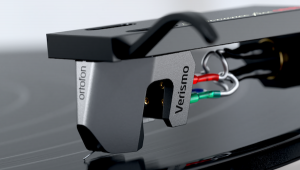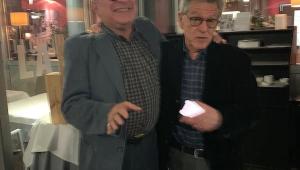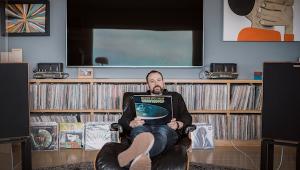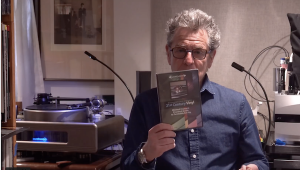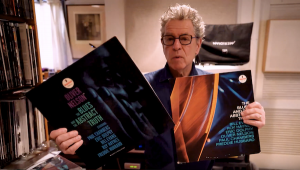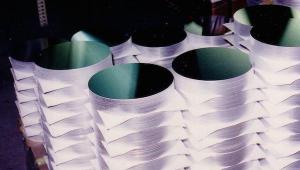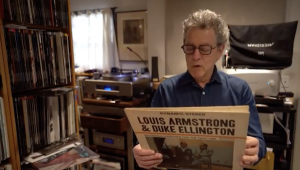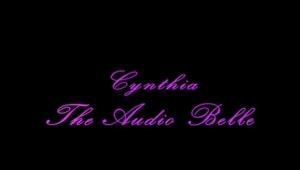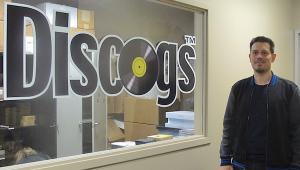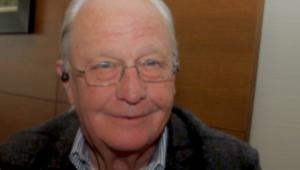Robin Trower Looks Back on His Rich Legacy With For Earth Below 50th Anniversary Edition 180g 2LP Set, Then Explores the Present With New Come and Find Me LP

Robin Trower is an unabashed guitar master. After he left British proto-prog rockers Procol Harum in 1971, he quickly established himself as an axeslinger/songwriter to be reckoned with via early albums like March 1973’s template setting Twice Removed From Yesterday, the perennial April 1974 FM favorite Bridge of Sighs (“Too Rolling Stoned,” the whooshing title track, and “Day of the Eagle”), and February 1975’s eternally rifftastical For Earth Below (all on Chrysalis). Each of them have been reissued in recent years by the resurrected Chrysalis imprint in celebration of their respective 50th anniversaries, replete with bonus tracks, live material, and alternate mixes galore — but Trower, a mere 80 years young at the time of this posting, continues to record vibrant new music as well.
His latest LP, Come and Find Me, was released on Provogue on May 15, 2025 (SRP: $28.99), and it continues a rich cycle of studio albums featuring his power-trio prowess. (The Music is an 8, and the Sound is also an 8.) That said, listening to all the recent upgraded anniversary editions has also been a treat. The latest addition to Trower’s expanded archival universe is the above-mentioned For Earth Below 180g 2LP 50th Anniversary Edition, which was released just a week ago on June 27, 2025, and it offers the Original 1975 Mix (2025 Remaster) on LP1, and the 2025 Stereo Mix on LP2. It’s a fascinating A/B study, as you can really discern how the 1975 mix is almost too contained on wax, whereas the wider, crisper soundstage of the 2025 stereo mix highlights the clever musicality and interplay between Trower, bassist/vocalist James Dewar, and drummer Bill Lordan. (The Music is an 8.5, and the Sound is an 8.5.)
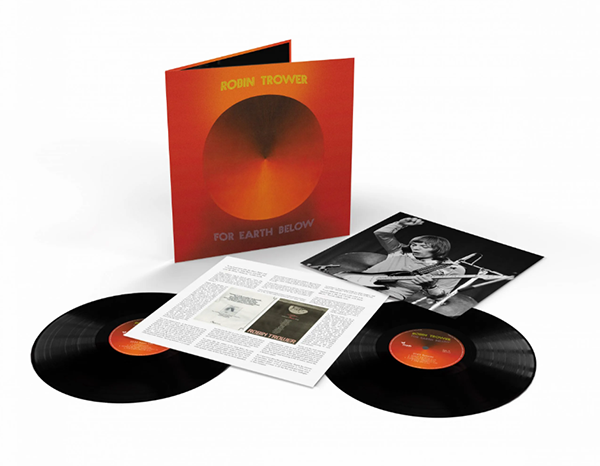
The For Earth Below stats are these, as confirmed exclusively and directly by Trower’s team for AP. Engineer Richard Whittaker went through the original multitrack tapes and discovered the extended stereo mixes from the original sessions, which were used for the 2025 stereo mix. The 1975 remaster is the original mix, as remastered at AIR Mastering. Phil Kinrade at AIR Mastering cut the half-speed-mastered vinyl. Said vinyl was then pressed at Seabass, and the set was printed at Anglo. The new 2LP For Earth Below sports a reasonable SRP of $39.99, and while it’s currently sold out on both Music Direct and Trower’s official site store, you can still get it right now through select indie shops and on Amazon. (You can also request Music Direct to notify you directly when they get it back in stock.)
As evidenced by the photo shown at the very outset of this story, I had the privilege of seeing Trower play a blistering, 14-song, 80-minute set at Asbury Hall inside Babeville in Buffalo, New York, on July 2, 2025, the very night before I completed this story. During that set, newer tracks like “The Razor’s Edge” and “One Go Round” meshed seamlessly with vintage cuts like “Distant Places of the Heart” (one of Trower’s collaborations with the late, great Jack Bruce) and “Bridge of Sighs.”
“Day of the Eagle” was also a highlight of the Babeville set, an interesting evolution of the previously unreleased live version of it on the 4CD hardback edition of For Earth Below that came from a March 16, 1975, performance at the Shrine Auditorium & Expo Hall in Los Angeles. “That live show really shows what we were up to at that time, because there’s a real live thing going on there,” Trower told me about that gig. When I mentioned that I thought I heard him doing a little “Born Under a Bad Sign” homage in the middle of that “Eagle,” he laughed quite heartily and replied, “It could be subliminal, I suppose — but I certainly wasn’t aware of it at the time.” He laughed some more, then added, “Well, Albert King is my favorite guitar player of all time — so that’s it.”
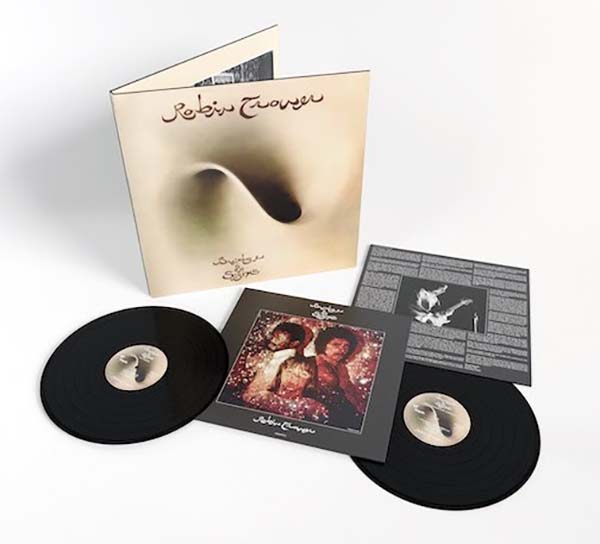
Does Trower think Chrysalis will continue updating and upgrading his catalog, even while he carries on with releasing new music on Provogue? “I think it probably depends how well these early ones sell,” he mused. “They’ll only do it if we can make money, you know?” Well, given how much people continue to love Bridge of Sighs and how For Earth Below has already fared barely a week after its release, I feel like expanded versions of, at the very least, both March 1976’s Robin Trower Live and October 1976’s Long Misty Days are more than likely on the horizon.
In a recent phone call across the Pond, Trower, 80, and I discussed the differences between the 1975 and 2025 For Earth Below mixes, the vibrancy of his new Come and Find Me LP, and the key reason why his music simply sounds better on vinyl. And the door remains open / A passing dream calls you in, calls you in. . .

Mike Mettler: Let’s talk about the new For Earth Below double vinyl reissue. Is it important to you that such classic records of your get this level of TLC?
Robin Trower: I think it’s a great thing. I have to be honest — I think Chrysalis do a great job with them. And, obviously, I have to “pass” it — it has to get past me — but that’s about all I do. I check it to make sure I’m happy for it to go out. But, yeah, no, I’m very pleased with what they do.
Mettler: Has there ever been anything you’ve heard where you’re like, “Hey, the guitar needs to be up more here,” or “something is out of whack”? Do you remember anything that you may have had a note on?
Trower: No! I’ve never had to say, “It’s not quite right.” I’ve been very happy with what they’ve come up with.
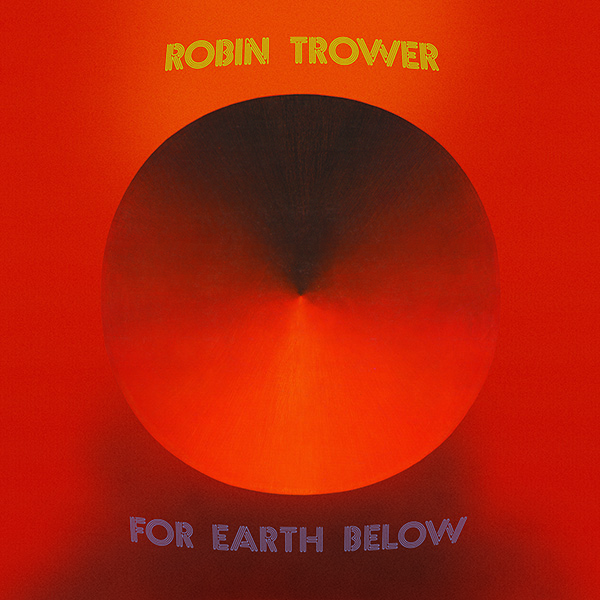
Mettler: Both sides of For Earth Below are about 18 minutes-and-change long. Was sequencing that important for you in those days? Were you very hands-on about, “Hey, ‘Shame the Devil’ absolutely has to be the first track on Side A,” for example?
Trower: Yeah, no — I always used to do the running order. It is important, definitely, because you want it all to hang together and run as smoothly as possible from track to track. And I also try and avoid having similar keys all the time next to each other, you know?
Mettler: Yeah, I do! And when it comes the very last track on Side B, “For Earth Below,” I don’t really feel like that title track could be anywhere else on the record. Did you know right away that that song was gonna end the album?
Trower: Ahh, I don’t think so, no. I mean, once you’ve got everything recorded, then you start to think about how they could run. They usually start off with your favorite rocker. (Footnote 1) And when it comes to that sort of thing, you think about the keys and the tempos, and try and put it together that way.
Mettler: Yeah, yeah. What’s interesting to me is, when I was listening back to the 2025 mix of “Shame the Devil” on LP2, I heard more of the tambourine stuff that I guess that Bill [Lordan, drummer] was doing there, which I didn’t really notice quite as much before in the original 1975 mix. The new version just felt “better” to me. Does that sound right to you?
Trower: Yeah, that’s true.
Mettler: Well, that’s a good thing. If I can take you way back to your own youth, to what I like to call the “The Talisman Record” — when you were growing up, did you have that very first, either it was like a 45 or a 78, or even just an album that was the first one you bought yourself where it was like, “Hey, this is my record” kind of thing?
Trower: The first record I can remember buying — and I wouldn’t swear to it, but I think I’m pretty sure it was — was a [1958] Gene Vincent record called “Git It.” (Footnote 2) Yeah, I did like Gene Vincent quite a lot. I was well into all the rock & roll artists.
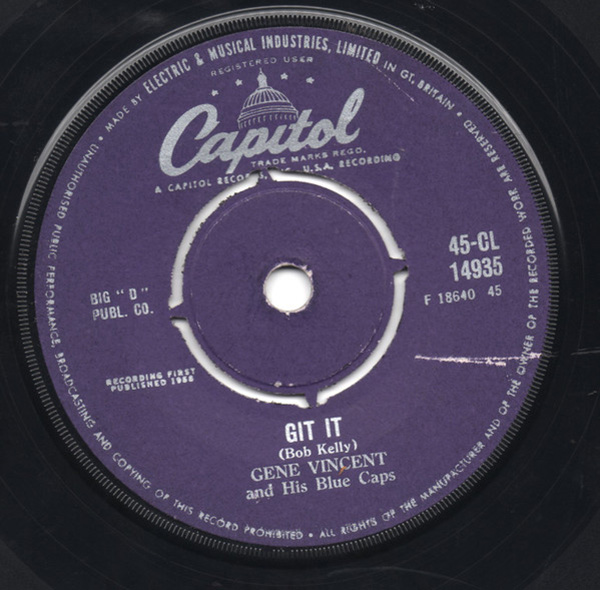
Mettler: Yeah. Were you into Eddie Cochran at all?
Trower: No, not so much. That was a little bit later for me, but more the early stuff like “Hound Dog,” by Elvis [Presley]. I think the guitar on that was by Scotty Moore, and that’s why I wanted to play guitar — it’s because of the guitar on “Hound Dog.” (Footnote 3)
Mettler: Wow. Well, that’s great DNA for your own playing, that’s for sure. Do you remember any other records from those early days that were important to you?
Trower: I think Jerry Lee Lewis at the time was quite — I was a big fan of his, yeah. He had a nice guitar player as well, but I don’t know his name. [That would be Kenny Lovelace]. On his early stuff, he had some nice guitar playing.
Mettler: Would you have been buying 45s or full records at that point?
Trower: I think probably initially, it was 78s. I was very fortunate that I had an elder brother [Mick Trower] who was buying records, and bringing them in — bringing them home. That’s how I got to hear all of this stuff, you know? That was my education. Early days.
Mettler: What did you wind up playing your records on? Did you have a family console/turntable kind of thing?
Trower: Oh yeah. Yeah, yeah. We had a radiogram, it was called. It was a combined radio and record player.
Mettler: Nice. We had one of those family consoles with the “floating” record player in it when I was growing up. I imagine you probably graduated to other, separate record players as time went on.
Trower: Eventually, yes. I had my own record player for my own room when I was starting to play [guitar] more, and maybe even bought a few records of my own by then.

Mettler: Did you do the thing some other guitar players did back in those days — slow a record down so you could play along to it and figure out what the guitar riffs were?
Trower: No, no. Can’t say I did, no. Well, I wasn’t a great copier. I wasn’t really interested in playing somebody else’s stuff. Early on, I started to work out my own way of playing, really. I think that’s where it starts.
Mettler: Would you say that stylistic choice came across on some of the early Procol Harum records where you were like, “this is my sound,” and we can identify it as Robin playing?
Trower: I think so. I’d have to go back and check it (laughs), but I think probably I was starting to develop a style. Very much coming from B.B. King, Bo Diddley, and all sorts of different players. And Scotty Moore, as you know. These were the inspirations.
Mettler: Yeah. Well, I think if people like listen very carefully to, say, something like the comps you did on the original “Conquistador” [from Procol Harum’s self-titled 1967 debut album on Regal Zonophone in the UK and Deram in the U.S.], you can feel some of those elements in there — but you’re making them your own, you know what I mean? You’re kind of an amalgamation of all that, but then you start to turn the crank on what you do as a player.
Trower: I think by the end of my time with Procol, I had really started to have a different way of playing. It definitely evolves through the few albums I did with them.
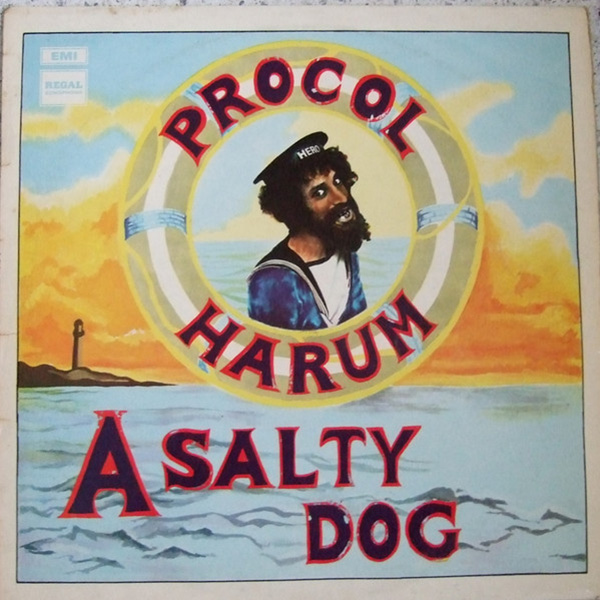
Mettler: I’m thinking of songs like “Whaling Stories,” the seven-minute track on Side 2 of [1970’s] Home, could be an example of that. Or something on [1969’s] A Salty Dog, like “Crucifiction Lane,” “Wreck of the Hesperus,” and other things. [These two LPs were released on Regal Zonophone in the UK, and on A&M in the U.S.]
Trower: Yeah. Yeah, that’s right. That’s when I started to become more interested in writing as well.
Mettler: Right. And, obviously, on For Earth Below, you have Matthew Fisher as the connective tissue — as the producer there. Did you feel like you guys were in sync just because you’d played together back in the days of Procol as well? [Fisher played Hammond organ and sang occasional lead vocals in Procol Harum.]
Trower: Well, I think two things. Mainly, it was because we got on very well. We were buddies, and I had great respect for his musicianship. So, I felt that, if he liked and passed what I was doing or what we were doing, I knew it would be okay because of his fantastic ability as a musician.
Mettler: Would you say a song like “A Tale Untold” on For Earth Below (Side B, Track 2) would be an example of where you guys were in sync in terms of how that was arranged?
Trower: No, Matthew never had anything to do with any arrangements. He produced, and made sure it sounded great. He made sure the tape was right. And obviously, you know the engineer has a lot to do with the way it sounds, and the way it is mixed. He had a good overview of it.
Mettler: Plus, it probably makes it easier for you to create when you know you’ve got somebody who’s got your back in the studio like that.
Trower: Absolutely!
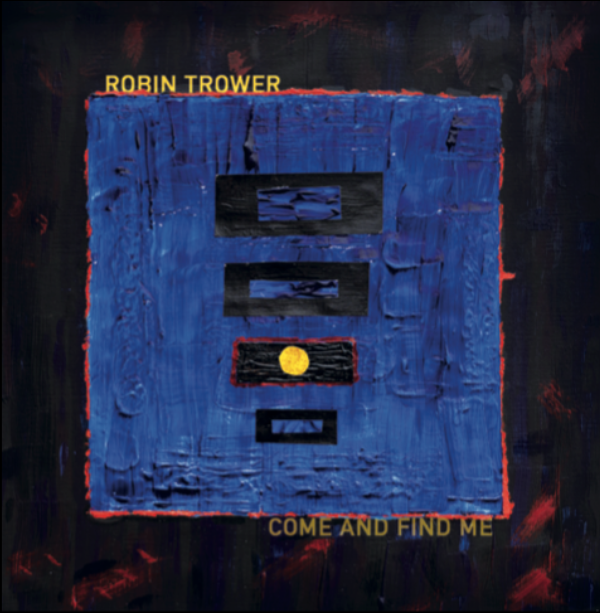
Mettler: Besides these anniversary box sets, I’m also happy to see that you’re putting out new music as well. You’re not stopping, and you’re not slowing down.
Trower: No, not at all! I’ve got one new album just come out, Come and Find Me.
Mettler: Yeah, and I also love the album before that, [October 2023’s Provogue release] Joyful Sky, with Sari [Schorr] doing great stuff all over it vocally.
Trower: Yeah. She’s knockout. No doubt about that.
Mettler: Do you feel you’re on a nice creative streak because you’re continuing to produce new material?
Trower: Yeah, and I’ve got another album in the can, actually, that I just finished a couple of weeks ago.
Mettler: Oh, great. Anything you’re allowed to tell me about that one now, on the early side of things?
Trower: I haven’t got a title for it yet. I’m still thinking about that. Well, they’ll probably give it to us next year, maybe if we get lucky. Yeah, I think probably it’ll come out next year, because I think we’re gonna have a live album out before then — in the autumn, maybe. That’ll also be on Mascot [Provogue’s parent label].
Mettler: I’m glad you continue to release live material too. Do you feel like that helps expand what you’ve put on the studio versions, that you’re able to take it to another level?
Trower: I think so, yeah. I mean, obviously, the live performances are — I wouldn’t say really high energy, but I do think that there’s a lot more power to them live, some of these songs.
Mettler: Yeah. Well, I think that comes through in the groove. Do you feel like people get a different listening experience if they put vinyl on as opposed to digital listening?
Trower: I think it is possible. I mean, you can’t speak for all people’s reaction, but to me, the vinyl always has that little bit more warmth to it — like a natural warmth, not an EQ warmth, d’you know what I mean?
Mettler: Yeah, I think you’re right about that. I would even go back to “A Tale Untold” where there’s a different feel to it, especially how the cymbals that Bill [Lordan] is doing at the very end sound more natural to me on vinyl. You react to it differently.
Trower: Yeah, yeah. No, I think that’s right. And the top end isn’t quite as brittle.
Mettler: Agreed. Well, one thing I wanna do before we go is, since we’re celebrating a 50th anniversary for the For Earth Below record, I’m gonna jump us now the other way and go 50 years into the future, so we’re gonna be in the year 2075. And, as I like to say, unless there’s some weird science going on, you and I may not physically be on the planet then — although you might still be playing. (Trower laughs heartily) Anyway — in those future days, if somebody types in “Robin Trower,” “Procol Harum,” or even “BLT” into a listening device to pull up your music, what kind of listening experience do you want a future listener to get from your music?
Trower: Ahh, well, I initially started out in the ’70s saying that I wanted to make music that connected soul to soul. I would hope that still might be the case 50 years from now — but, of course, I can’t say.
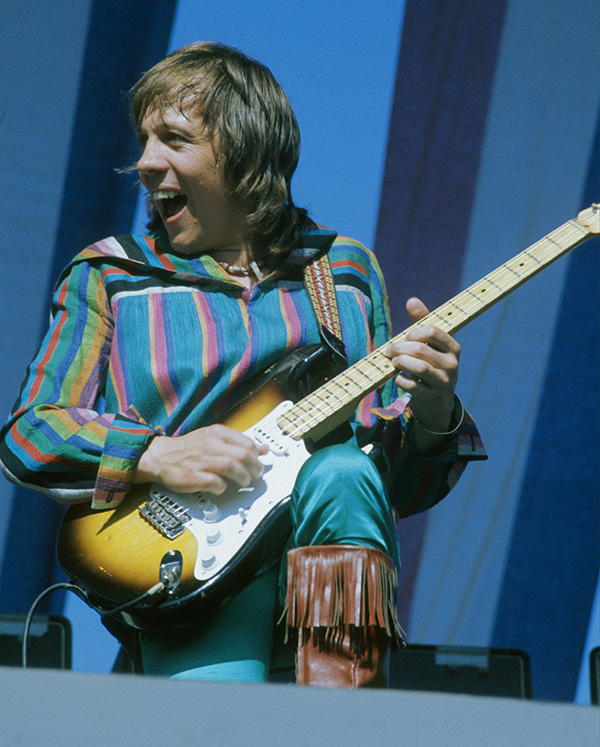
Author bio: Mike Mettler is the editor of Analog Planet in addition to being the music editor of our sister site Sound & Vision, and he’s also a contributing music editor to one of our other sister sites, Stereophile, in addition to being the regular Vinyl Icons column scribe for Hi-Fi News. Plus, he’s quite partial to vintage 1967 Mustang fastbacks, but that’s a story for another time and place.
Footnote 1: Mike Mettler adds: Just as Bridge of Sighs started with the mighty “Day of the Eagle,” so too did For Earth Below commence in semi-parallel fashion with the hard-hitting “Shame the Devil.”
Footnote 2: “Git It” was the A-side of a Gene Vincent and His Blue Caps Capitol 45 in both the U.S. and UK in 1958, and it was also released on the 1959 Capitol LP, A Gene Vincent Record Date, which was credited as being by Gene Vincent With The Blue Caps.
Footnote 3: “Hound Dog,” the B-side to Elvis’ No. 1 hit “Don’t Be Cruel,” was itself a No. 1 U.S., No. 2 UK single on RCA in 1956.

ROBIN TROWER
FOR EARTH BELOW – 50TH ANNIVERSARY EDITION
180g 2LP (Chrysalis)
Original 1975 Mix (2025 Remaster)
LP1, Side A
1. Shame The Devil
2. It’s Only Money
3. Confessin’ Midnight
4. Fine Day
LP1, Side B
1. Alethea
2. A Tale Untold
3. Gonna Be More Suspicious
4. For Earth Below

2025 Stereo Mix
LP2, Side A
1. Shame The Devil
2. It’s Only Money
3. Confessin’ Midnight
4. Fine Day
LP2, Side B
1. Alethea
2. A Tale Untold
3. Gonna Be More Suspicious
4. For Earth Below

ROBIN TROWER
COME AND FIND ME
1LP (Provogue)
Side A
1. A Little Bit Of Freedom
2. One Go Round
3. I Would Lose My Mind
4. Come And Find Me
5. Take This Hurt Away
6. The Future Starts Right Here
Side B
1. Tangled Love
2. Capture The Life Begun
3. Without A Trace
4. I Fly Straight To You
5. Time Stood Still





